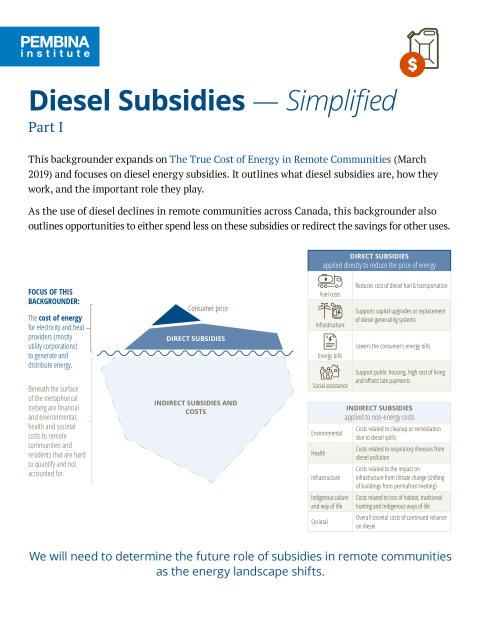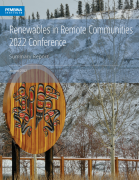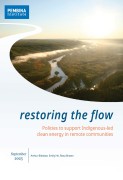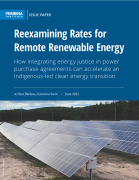For decades, remote communities have relied on expensive diesel fuel and infrastructure for energy. Subsidies are required to make rates somewhat affordable for consumers, effectively obscuring the true cost of using diesel and creating barriers to developing renewable sources of energy or building more energy efficient structures.
But the energy landscape in remote communities is changing as the federal government commits to supporting communities’ transition to alternative energy systems. Introducing energy efficiency and renewables will require a reconsideration of how diesel subsidies entrench diesel dependency and competitive advantage. Rethinking subsidies will entail creating additional funding streams and policies directed to the clean energy transition.
This backgrounder outlines how diesel subsidies work, the degree to which they mask the full cost of using diesel, and how they reinforce the use of a fuel that causes both environmental degradation and adverse health effects. Moreover, the current system is one where remote, largely Indigenous, communities have little agency over the source of energy they depend on and how it is generated.
The Diesel Subsidies Simplified backgrounder outlines key takeaways and opportunities to consider as remote communities continue their work bringing clean energy solutions to their communities.
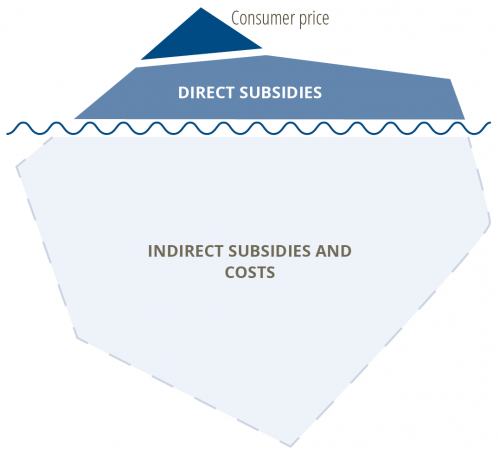
This is Part I of a two-part series outlining the critical role subsidies play in the energy system in remote communities. Part II of Diesel Subsidies Simplified will take a closer look at the cost of subsidies to support fuel, infrastructure, energy bills, and social assistance. The second publication in this series will also offer policy recommendations so that subsidies are re-directed to support a transition to clean energy.
Thank you to WWF-Canada for their generous financial contribution and guidance.
Diesel Subsidies Simplified Part I has been developed in part through the Indigenous Off-Diesel Initiative.

